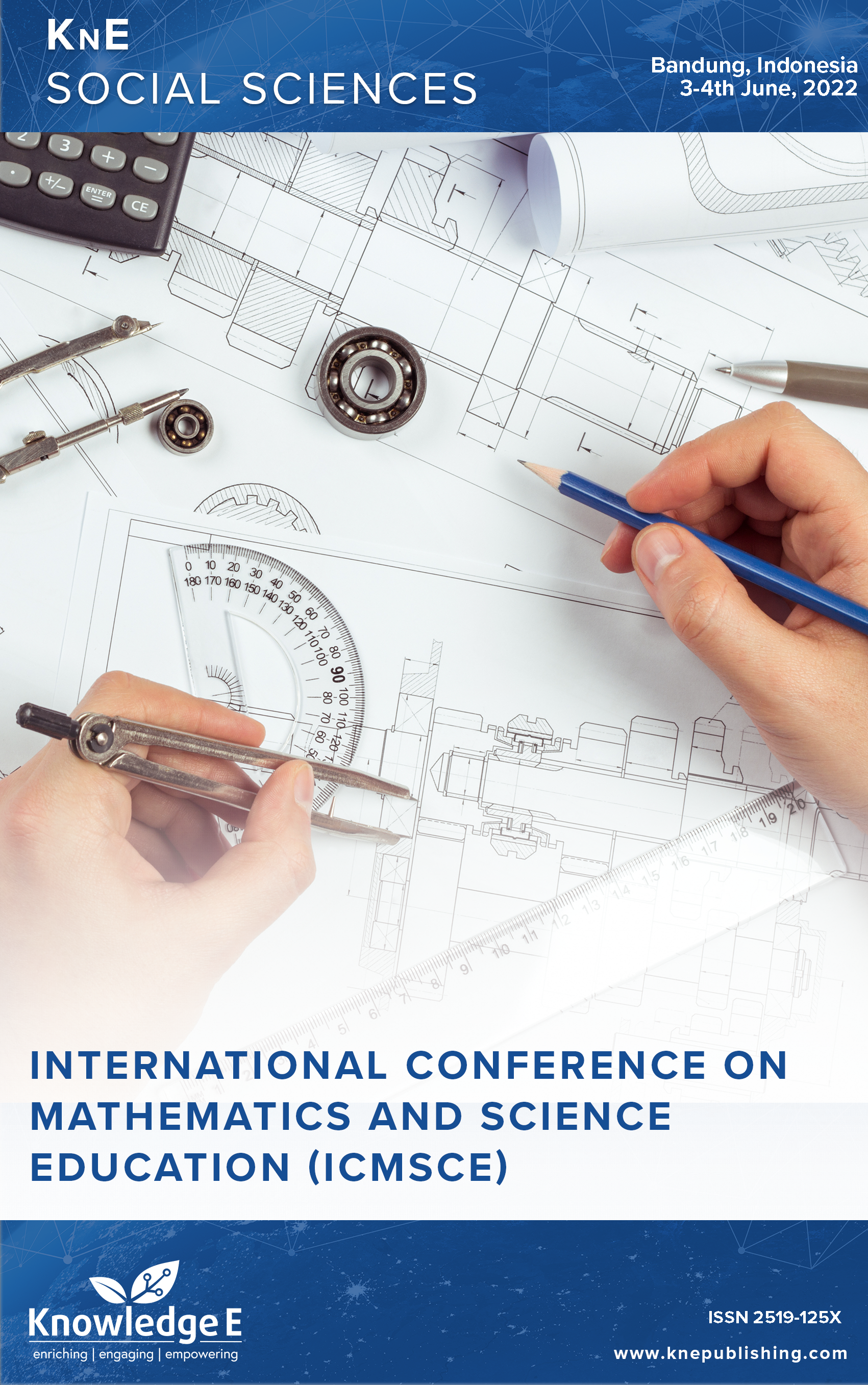Improving Scientific Argumentation in University Students Through a Training Approach
DOI:
https://doi.org/10.18502/kss.v9i13.15990Abstract
The capacity to recognize formal arguments is crucial for clinical literacy. However, college students frequently lack a structural understanding of those arguments, in particular when the arguments are extra complicated. This study used an experimental method with a pre-post-check design. A follow-up of four weeks was used to research whether courses on figuring out the structural additives of casual arguments would enhance college students’ competence to recognize complicated arguments. The course was embedded in a constructivist mastering surroundings, and its content material was primarily based totally on Toulmin’s argument shape model, consistent with which arguments may be deconstructed into numerous purposeful additives: claims, datums, warrants, helping evidence, and rebuttals. Being capable of discovering warrants was primary to clinical literacy due to the fact warrants decide whether an end was justified primarily based totally on data. The effects display that schooling in argument shape typically no longer enhances overall recital for all college pupils and argument kinds, however, it’s miles beneficial for figuring out extra complicated arguments with much less specific systems and relational components among key additives (i.e. warrants). High-reaching college students gain maximum from this intervention, and it additionally enables college students with excessive pretest correctness scores. Our effects advocate that interferences to sell argumentation abilities need to be included in the curriculum, and those interventions need to be designed to shape the skill degree of learners.
Keywords: Scientific Argumentation, University Students, Training Approach
References
Hadianto D, Damaianti VS, Mulyati Y, Sastromiharjo A. Effectiveness of literacy teaching design integrating local culture discourse and activities to enhance reading skills. Cogent Education. 2022;9(1):0–13. https://doi.org/10.1080/2331186X.2021.2016040. DOI: https://doi.org/10.1080/2331186X.2021.2016040
Cinici A. Balancing the pros and cons of GMOs: socio-scientific argumentation in pre-service teacher education. Int J Sci Educ. 2016;38(11):1841–66. DOI: https://doi.org/10.1080/09500693.2016.1220033
Gilles B, Buck G. Preservice teachers’ use of discourse to shape the construction of scientific arguments. J Sci Teach Educ. 2020;31(3):291–310. DOI: https://doi.org/10.1080/1046560X.2019.1696005
Jönsson A. Student performance on argumentation task in the Swedish national assessment in science. Int J Sci Educ. 2016;38(11):1825–40. DOI: https://doi.org/10.1080/09500693.2016.1218567
Hadianto D, Damaianti VS, Mulyati Y, Sastromiharjo A. Enhancing scientific argumentation skill through partnership comprehensive literacy. J Phys Conf Ser. 2021;2098(1):012015. DOI: https://doi.org/10.1088/1742-6596/2098/1/012015
Gibson K. Analogy in scientific argumentation. Tech Commun Q. 2008;17(2):202–19. DOI: https://doi.org/10.1080/10572250701878868
Heng LL, Surif J, Seng CH. Malaysian students’ scientific argumentation: do groups perform better than individuals? Int J Sci Educ. 2015;37(3):505–28. DOI: https://doi.org/10.1080/09500693.2014.995147
Infante P, Licona PR. Translanguaging as pedagogy: developing learner scientific discursive practices in a bilingual middle school science classroom. Int J Biling Educ Biling. 2021;24(7):913–26. DOI: https://doi.org/10.1080/13670050.2018.1526885
Clayton DS, Gautier C. Scientific argumentation in earth system science education. J Geosci Educ. 2006;54(3):374–82. DOI: https://doi.org/10.5408/1089-9995-54.3.374
Ford MJ. A dialogic account of sense-making in scientific argumentation and reasoning. Cogn Instr. 2012;30(3):207–45. DOI: https://doi.org/10.1080/07370008.2012.689383
Erduran S, Kaya E. Scientific argumentation and deliberative democracy: an incompatible mix in school science? Theory Pract. 2016;55(4):302–10. DOI: https://doi.org/10.1080/00405841.2016.1208067
Acar O, Turkmen L, Roychoudhury A. Student difficulties in socio-scientific argumentation and decision-making research findings: crossing the borders of two research lines. Int J Sci Educ. 2010;32(9):1191–206. DOI: https://doi.org/10.1080/09500690902991805
Bathgate M, Crowell A, Schunn C, Cannady M, Dorph R. The learning benefits of being willing and able to engage in scientific argumentation. Int J Sci Educ. 2015;37(10):1590–612. DOI: https://doi.org/10.1080/09500693.2015.1045958
Christenson N, Chang Rundgren SN. A framework for teachers assessment of socio-scientific argumentation: an example using the GMO issue. J Biol Educ. 2015;49(2):204–12. DOI: https://doi.org/10.1080/00219266.2014.923486
Jones L. Developing deaf children’s conceptual understanding and scientific argumentation skills: A literature review. Deafness Educ Int. 2014;16(3):146–60. DOI: https://doi.org/10.1179/1557069X13Y.0000000032
Koffman BG, Kreutz KJ, Trenbath K. Integrating scientific argumentation to improve undergraduate writing and learning in a global environmental change course. J Geosci Educ. 2017;65(3):231–9. DOI: https://doi.org/10.5408/16-232.1
Mao L, Liu OL, Roohr K, Belur V, Mulholland M, Lee HS, et al. Validation of automated scoring for a formative assessment that employs scientific argumentation. Educ Assess. 2018;23(2):121–38. DOI: https://doi.org/10.1080/10627197.2018.1427570
McNeill KL, Marco-Bujosa LM, González-Howard M, Loper S. Teachers’ enactments of curriculum: fidelity to procedure versus fidelity to goal for scientific argumentation. Int J Sci Educ. 2018;40(12):1455–75. DOI: https://doi.org/10.1080/09500693.2018.1482508
Shemwell JT, Furtak EM. Science classroom discussion as scientific argumentation: A study of conceptually rich (and poor) student talk. Educ Assess. 2010;15(3–4):222– 50. DOI: https://doi.org/10.1080/10627197.2010.530563
Stark R, Puhl T, Krause UM. Improving scientific argumentation skills by a problembased learning environment: effects of an elaboration tool and relevance of student characteristics. Eval Res Educ. 2009;22(1):51–68. DOI: https://doi.org/10.1080/09500790903082362
Pallant A, Lee HS, Pryputniewicz S. How to support secondary school students’ consideration of uncertainty in scientific argument writing: A case study of a High- Adventure Science curriculum module. J Geosci Educ. 2020;68(1):8–19. DOI: https://doi.org/10.1080/10899995.2019.1622403
Jin Q, Kim M. Supporting elementary students’ scientific argumentation with Argument-focused Metacognitive Scaffolds (AMS). Int J Sci Educ. 2021;43(12):1984– 2006. DOI: https://doi.org/10.1080/09500693.2021.1947542
Zhu M, Lee HS, Wang T, Liu OL, Belur V, Pallant A. Investigating the impact of automated feedback on students’ scientific argumentation. Int J Sci Educ. 2017;39(12):1648–68. DOI: https://doi.org/10.1080/09500693.2017.1347303

